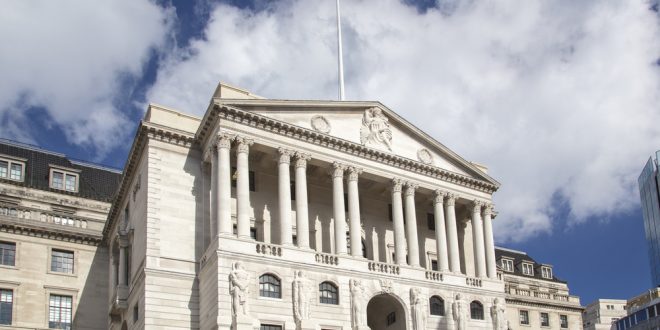The Bank of England (BoE) recently said that both the central bank and the government must provide more incentives for insurance companies, as well as investment and pension funds to invest in companies that are recovering from negative effects of the COVID-19 crisis.
The aim is to encourage finance for longer-term investment projects that are not suitable for banks, according to a report by Reuters.
As part of the COVID-19 impact, many businesses that obtained finances will look to hike their capital or raise equity to repay debts, especially for companies that are not listed on the stock exchange, according to Alex Brazier, the BoE’s Executive Director for Financial Stability Strategy and Risk.
Meanwhile, such businesses have received bank loans worth around GBP 50 billion ($64 billion), as part of government-supported financing scheme.
By July 26, lending through the UK government three support programs for small, medium, and large businesses amounted to a total GBP 49.43 billion.
Brazier believes, as he explained in a speech cited by the news agency, that shifting 1% of investments towards unlisted equity could raise another GBP 50 billion.
“The need for more equity finance creates a case for authorities to be ambitious in reforming the financial system to remove any biases against the patience that’s needed for many equity investments.”
“Even investors who should have the longest horizons seem to have a fetish for liquidity and an aversion to really illiquid growth capital assets.”
On the other hand, government support for furloughed workers increased to GBP 31.7 billion, according to data by the British Chancellor of the Exchequer.
As for the Coronavirus Job Retention Scheme, it has provided support for 9.5 million jobs, providing a total of GBP 31.7 billion as of last week.
As part of its efforts to support the banking sector, BoE recently revealed that it could soon introduce more flexible rules for small banks that are providing mortgage loans.
This could help smaller banks increase their footprint in a market segment that has been dominated by big banks in the UK.
“We are considering, in particular, whether there might be scope to introduce a new regime for smaller banks following Britain’s departure from the European Union (EU),” Sarah Breeden, BoE’s Executive Director for UK Deposit Takers Supervision, said.
On the digital front, BoE has hired Accenture to help modernize the payment infrastructure across the UK.
The renewal of the Real-Time Gross Settlement (RTGS) service, which currently manages GBP 685 billion per day, is valued at GBP 150 million ($195 million) and is set to begin by 2022, according to Reuters.
“The Renewal Program is a key priority not just for the Bank but also the wider UK payments industry. It will support a resilient financial system that protects the UK’s financial and monetary stability in the years to come,” said, Victoria Cleland, the BoE’s Executive Director for Banking, Payments, and Innovation.
 Noor Trends News, Technical Analysis, Educational Tools and Recommendations
Noor Trends News, Technical Analysis, Educational Tools and Recommendations





